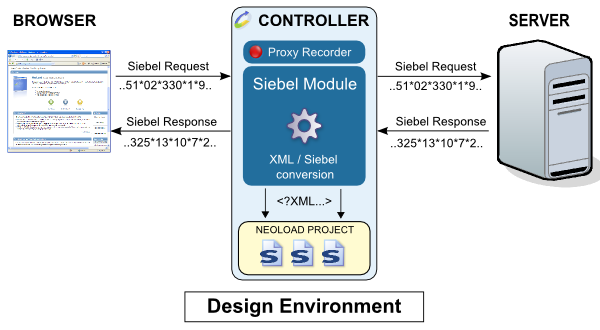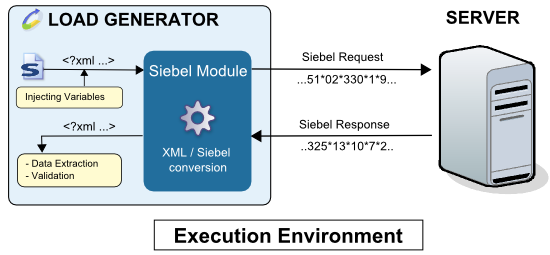|
|
|
| |
Siebel requests
Overview
Siebel is a CRM (Customer Relationship Management) solution from Oracle. NeoLoad optional Siebel module allows load testing Siebel applications from version 7.0 up.
The HTTP requests sent by the client to the Siebel server use a specific formalism, which is difficult to interpret without some kind of decoding mechanism. NeoLoad converts these messages into XML, to make designing scenarios easy.
To be able to handle Siebel requests, you will need to purchase the optional Siebel module. This module is included in the demo version of NeoLoad.
Recording
The following diagram shows how the Siebel module functions during recording:

The data exchanged between the client and server transit through the recording proxy. It is during this transit that the Siebel module analyzes and decodes the requests. Once they have been converted into XML, the requests are inserted in the project.
Runtime
The following diagram shows how the Siebel module functions during test runtime:

The variables in the XML request are calculated and the module engine converts the XML into a Siebel request and the data is then sent to the server. The Siebel response received is converted into XML, after which the validations and Variable Extractors in the played request are executed.